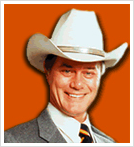The New Bharat Brass Band of Bangalore is owned by Rama Swami, a former virtuoso of the clarinet. He conducts the Band while his brother arranges and harmonizes Bollywood hit songs for the wedding season. Most of the musicians are outsiders who used to play in smaller bands, although a few of them have hereditary associations with Swami’s orchestra. Half of them have other sources of income.
The selection is a mix of old and fresh themes. A Brass Band will usually play some 15 songs, with a few breaks, most probably repeating some tunes here and there, for a total of two hours. Brass Bands have been using synths, drums and loudspeakers for a few decades in order to overcome all other noise sources like car horns, constant firecrackers and varied sound systems.
The New Bharat Brass Band plays songs from films in several different Indian languages, and sometimes includes some Western tunes, like waltzes and South-American tunes. The Brass Band toured in Europe in 1992. Some say it was a huge success.

1. Hurdaya Jatula
2. Kitenedhino Ke Bad
3. Vasa Prema Dalli
4. Akash Belali Mele
5. Raja Ti Unnay Kanna MeNanji
6. Ennay Yarendre Nee Pakira
7. O Pryia Pryia
8. Chamil
9. Chumma Chumma
10. Kali Teri Choti
11. Manna Dole
Clarinets: S. Ramesh, S. Kumar, S. Murti
Trumpets: A. Antony, M. Channabasavanna, H. Hanumanthappa, V. Ramachandra, I. Sudharkar
Euphoniums: A. Arogoyam, R. Kumar, C. M. Sahib,
Alto Sax: M. Babulal
Tavil: K. Ramdas
Bass Drum: E. Venkatappa
Tap Dhol: A. Jaganath
Side Drum: R. Mustaq
Recorded in Malakoff, France, in July 1992
link@320

















